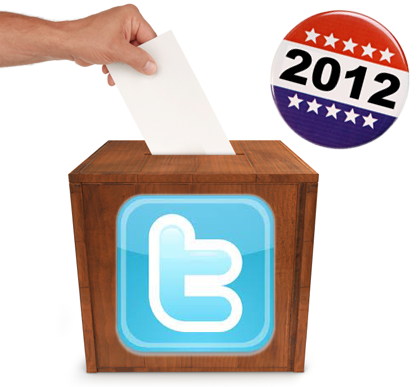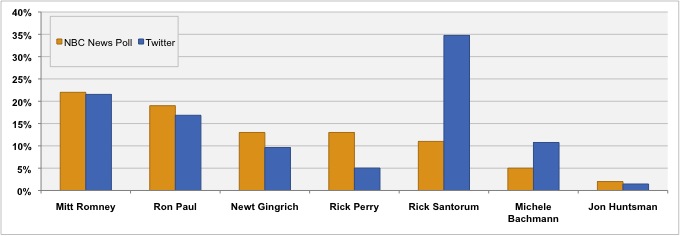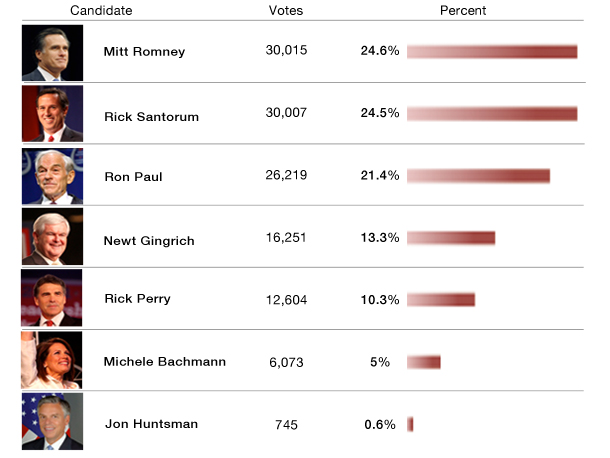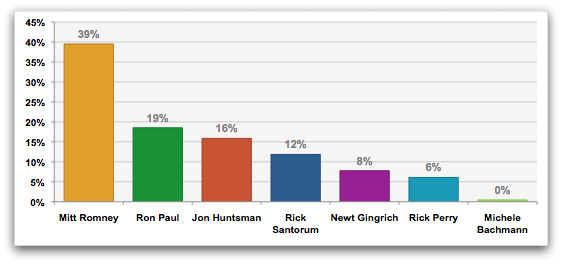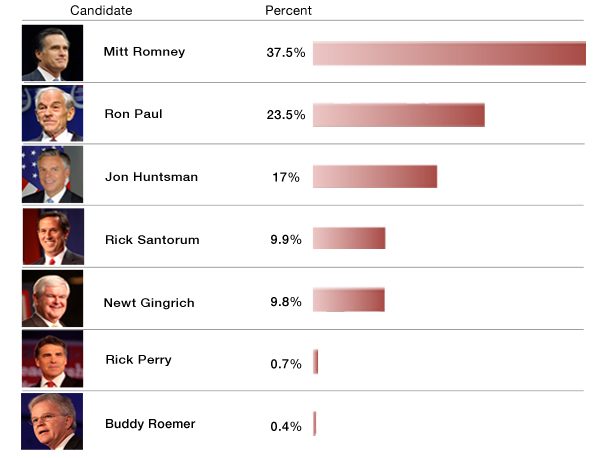The New Hampshire Primary Election results are in, but the results are little surprise to social media junkies.
With the election season in full swing, both voters and candidates are turning to social media to join the conversation. This isn’t the first time social media has affected the electoral process. Barack Obama proved the power of social media in 2008. However, this is the first time social media has been used to accurately gauge political sentiment.
2012 Iowa Caucus on Twitter
Political analysts have traditionally relied on national polls to predict candidate ratings. With the rise of social media use across the nation in the past few years, though, Twitter may be the new preferred way of predicting election outcomes.
Take the Iowa caucus for example. The NBC News Poll predictions pretty closely matched twitter predictions with one exceptional difference.
While Santorum appeared to be a dark horse to most political analysts, but twitter analyst could clearly predict his success. And overall, twitter’s predictions were closer than NBC News’ predictions to the actual results.
2012 New Hampshire Caucus on Twitter
A similar trend occurred with the New Hampshire primary elections. Twitter polls predicted a clear win by Mitt Romney followed by a close race for second between Ron Paul, John Huntsman, and Rick Santorum.
The result numbers almost identically match those predictions with a slightly larger margin between second, third, and fourth.
Is Twitter a better political gauge than polls?
In the 2008 elections, very few people were turning to twitter to watch the election. In fact, very few people were turning to twitter at all. Sure, twitter experienced significant growth in 2008, but still, by the end of the year only 6 million twitter accounts existed, hardly an accurate representation of the general public.
Today, however, with 150 million users world wide, twitter can much more accurately represent the general public.
Furthermore, a recent study by the Pew Internet Foundation found that Twitter users as well as other social media users are more likely to be politically engaged. Of course, the average American is less politically engaged than those who participate in primary elections. Does this mean that twitter will be less likely to predict general election results than it has with the primary election?
How to follow the candidates on Twitter
In addition to the buzz voters are generating, the candidates themselves are also actively engaging in social media.

For more statistics, the Washington Post’s @mentionmachine has been following and graphing twitter mentions for each of the candidates, thought the graphs are somewhat sparse. 2012twit.com also has some good statistics on the candidates’ twitter presence.

